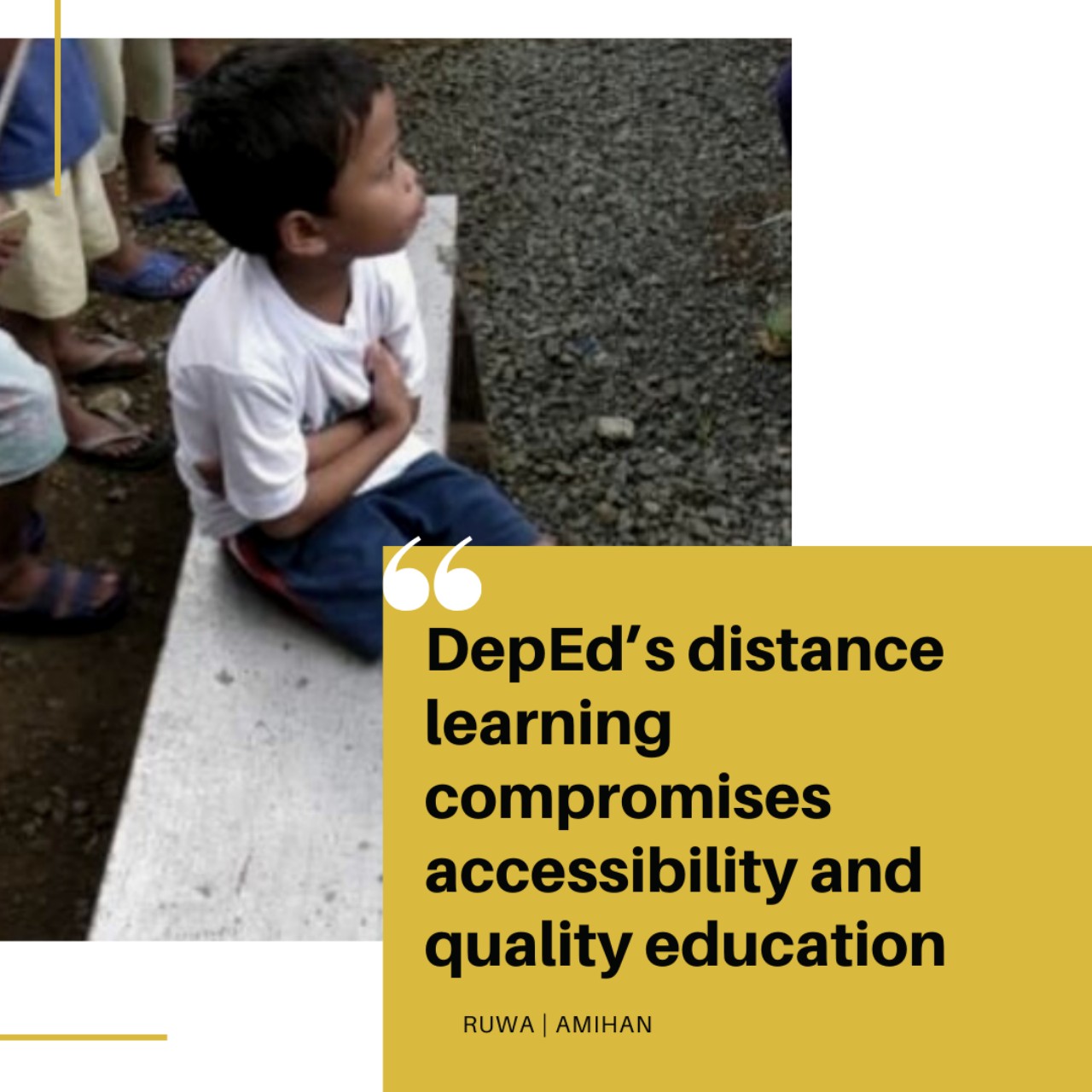As the Department of Education maintains the formal opening of classes on August 24 through distance learning, the National Federation of Peasant Women (Amihan) said that the alternative modes of learning might compromise the accessibility and quality of education.
“The options under distance learning such as online, modular, radio and television-based instruction all involves buying gadgets such as laptop computers, smartphones, TV sets and transistor radios. On top of these are the costs of internet, load, electricity and transportation,” Amihan national chairperson Zenaida Soriano said.
“Poor families have yet to recover from the losses in livelihood and household incomes. Thousands of peasant families have yet to receive financial aid from the government while production support has been limited to loans and a few seeds and fertilizers for rice farmers. Kung yung pang-araw-araw na gastusin nga tulad ng pagkain kapos na paano pa sila bibili ng bagong kagamitan o regular na maglo-load?,” Soriano added.
The suicide of a 19-year-old student from Sto. Domingo, Albay due to worries of high costs of enrollment is an example of the distress and anxiety of students caused by distance learning.
The group said that distance learning puts ‘backward’ learners and those whose parents or guardians are working full-time or have limited educational attainment at a disadvantage as it requires parents or guardians to assist the learners in their studies.
The peasant leader said that in a society where women are expected to take charge of household concerns, distance learning will be an additional burden for women, especially those who have full-time jobs, including farmers and teachers. She also pointed out that the cases where parents are working out of town or out of the country.
“With just a few months to prepare for the teachers to hone their skills in these new modes of teaching, writing and printing of modules, there is no assurance on the effectiveness of these new approaches,” Soriano said.
“With lacking preparations, funds and concrete plans from the government to ensure the safe, accessible and quality education, the burden is left to the teachers, learners and their parents,” Soriano added.
“The key to ensure the safe opening of classes is for the government to urgently resolve the country’s health and socio-economic crisis, improve school facilities based on health protocols, guarantee accessible and quality education, protect and uphold teachers’ and school personnel’s rights and democratic consultation to stakeholders,” Soriano ended. ###

